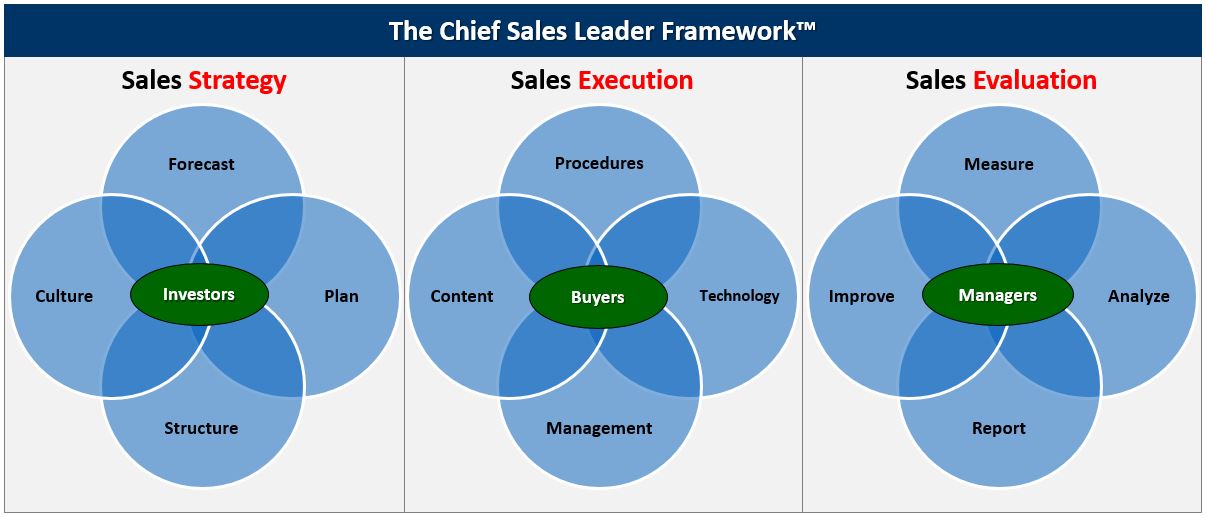Training: How To Build a Sales Team
Learn how to build a sales team that executes with precision – – effectively, efficiently, and predictably
Our Sales Process Training Will Show You “How To”…
Sales Strategy
- Determine when to build a sales team
- Cover start-up costs while hiring salespeople and/or sales managers
- Set revenue, sales pipeline activity, sales productivity, and sales staffing levels
- Create an accurate sales forecast
- Define the steps that should be taken to build a sales team
- Select the right sales team organization structure and job descriptions
Sales Execution
- Approach sales calls, including what messaging, presentation, and hand-outs to use with buyers
- Generate qualified leads
- Schedule sales appointments that actually complete
- Select the right pricing, proposal, and discount model
- Hire the right salespeople and manager
- Onboard new salespeople without wasting time, money, and morale
- Compensate sale people
Sales Evaluation
- What measures should we track
- How should we track sales activities, sales opportunities, and sales
- What
are the best way to analyze a sales team, managers, and people - What type of sales reporting should we be looking at
- How do you pinpoint and prioritize sales process improvements

- Time pressure to generate immediate revenue results causes them to cut corners
- Inability to quickly transfer product, service, pricing and other technical knowledge to sales managers and people
- Management lacks expertise in sales and sales management methods, techniques and tools
- Unrealistic expectations that sales managers can: make sales calls, hire and manage salespeople, deploy sales technology, manage office space, and build sales strategy and forecasts
- Incomplete and/or conflicting procedures, information, policies, and guidelines
- Inability to sift through “the blizzard” of expert advice from key advisers i.e. investors, bankers, accountants, lawyers, family, and friends

This Program Can Be Delivered Via:
- Webinar
- Two-hour Workshop Overview
- Four-hour Workshop Covering The Basics
- One-day Workshop
- Monthly Workshop Series
- Quarterly Workshop Series
Training: How To Build a Sales Team
- Learn best practices, procedures, and policies
- Learn about sales technology
- Learn how to measure a sales team and people
- Review real-life examples from multiple industries
- Share peer experiences
- Take away step-by-step instructions and sample templates


Module 2 – Why You Should Start At The Sales Call and Work Backwards because that is where the buyer resides, we can instantly learn if our messaging and value proposition is working, and time-saving lessons are learned for building the three (3) strategic and twelve (12) operating process that is required for a sales team to execute with precision – – effectively, efficiently, and predictably
Module 4 – Hiring and Onboarding The Right Sales Managers and People including finding, screening, interviewing, making job offers and career development planning. We will also cover how to use college interns working toward professional selling degrees to energize your sales team for 25% of the cost of traditional hiring methods
Module 7 – Sales Management Approach including when and how to: manage team meetings, compensate, coach, evaluate, train and develop business development, account management,
Module 8 – Sales Culture and Mindset to lay the foundation for a sales team that mirrors the: values, mindset, behaviors, and decision-making approach of company leaders
An accomplished Chief Sales Leader™ with global experience connecting, mentoring and enabling sales teams to execute with precision – – effectively, efficiently, and predictably
- Serving in C-level roles in both publicly-traded and privately-held companies
- Building, restructuring, improving and merging sales teams
- Consulting in over thirty industries
- Managing sales teams in both monopoly-regulated and non-regulated environments
- Leading sales teams in the Fortune 500, middle market, small business and in start-ups
- Hiring, coaching and mentoring thousands of sales leaders, managers, and people
- Selling both products and services
- Networking with thousands of people around the world
- Living in Metro New York City, Los Angeles, San Francisco, Minneapolis, Metro Detroit


